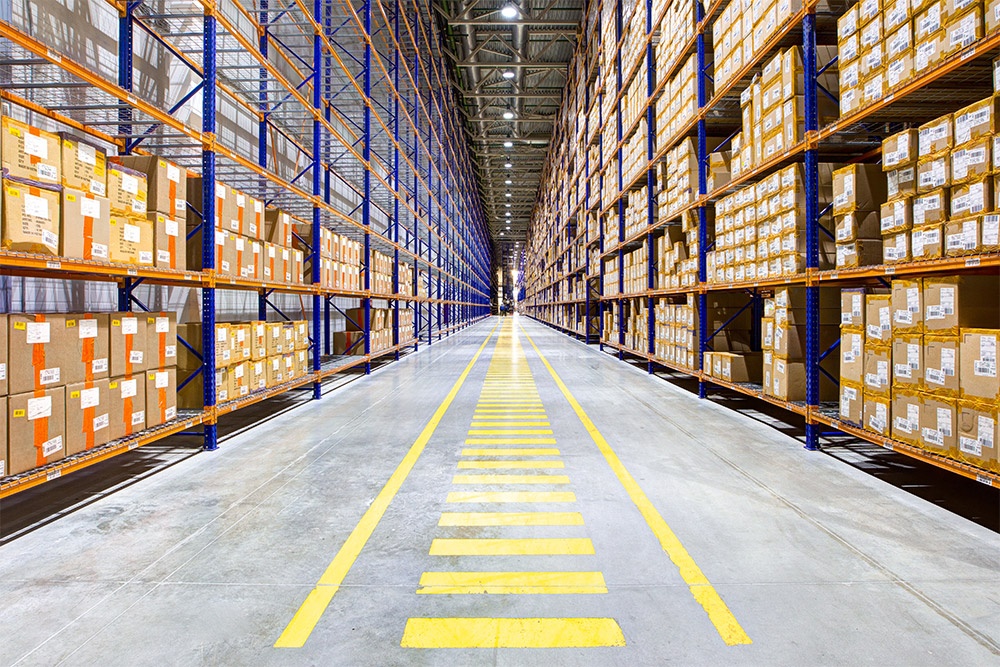Logistics names pin hopes on 2025
Making a speech on January 6, Nguyen Canh Tinh, CEO of shipping giant Vietnam Maritime Corporation (VIMC), offered caution when he reviewed the company’s 2024 performance and set the tasks for 2025.
“Over the past year, the global situation has continued to fluctuate unpredictably, with the shipping market still unstable due to the impact of geopolitical conflicts, as well as the crisis in the Red Sea. Meanwhile, the level of competition in the port sector has become increasingly fierce due to the new privately run ports.”
Tinh said that the headwinds were tricky for VIMC, which was forced it to introduce changes to maintain competitiveness and growth, with restructuring its fleet.
VIMC saw the sea transport output handled by its fleet reach approximately 20 million tonnes, exceeding the 2024 plan by 22 per cent. In the seaport sector, the cargo throughput was estimated at 145 million tonnes, up 26 per cent on-year and surpassing the annual plan by 17 per cent.
 |
| Logistics names pin hopes on 2025 |
The business results from these two pillars brought VIMC’s total revenue to $1.03 billion, of which consolidated revenue was $758.75 million, up 30 per cent from 2023 and exceeding the 2024 plan by 35 per cent. “Despite the decline in fleet capacity, the volume of maritime transport far exceeded the 2024 plan thanks to the promotion of chartering activities,” Tinh said.
Moreover, during 2024, VIMC Lines also expanded operations and developed service routes connecting Malaysia, Singapore, and Indonesia, as well as 10 new container service routes to the ports of Haiphong, Danang, and Quy Nhon and major service routes, directly connecting the domestic seaport system with those in Europe and the United States.
Meanwhile, Vietnamese-run Bee Logistics has demonstrated its flexibility and resilience through major strides in digital transformation and restructuring.
“To keep up with foreign companies, we focus on digitalisation and investing heavily in IT to optimise operating processes as well as improve operational efficiency. More importantly, improving customer experience is still the company’s goal,” said Tran Nhat Phuong, deputy general director of Bee Logistics.
“In fact, we invest heavily in IT software with streamlined features and automatic data sharing integration. The goal is that by 2030, 95 per cent of the company’s operations will be done using software. And 80 per cent of our foreign agency partners and half of our main customers can connect with us via API,” he added.
The transformation resulted in the company’s annual growth of 15 per cent in 2024. Specialising in air and sea freight, warehousing, and cross-border trucking solutions, the company now has presence in 16 countries and territories through 41 offices worldwide. Bee Logistics aims to open three new African offices in 2025, and become a multinational group in the next five years.
Similarly, FedEx also focused on developing new services, with the success of its new flight service enabling the company to make gains. The route helps enhance intercontinental package delivery services between Vietnam and key markets across Asia, the Middle East, Africa, and Europe.
“This new service has also significantly enhanced our freight shipping capabilities, particularly for customers in the technology, fashion, textiles, and apparel sectors,” said Ee-Hui Tan, managing director of FedEx Vietnam and Cambodia.
The Vietnam Logistics Business Association forecast that the development prospects in 2025 as positive, driven by the growth of e-commerce, boosted infrastructure investment and increased international integration. The local e-commerce market is expected to reach $39 billion in 2025, according to Google, Temasek, and Bain & Company.
Moreover, free trade agreements like the ASEAN-China Free Trade Area and the Regional Comprehensive Economic Partnership have reduced tariffs and streamlined cross-border commerce, enabling businesses to navigate regional markets more seamlessly. These agreements have bolstered Southeast Asia’s position as a critical link in the regional supply chain.
VIMC’s Tinh said that the company would focus on implementing ventures such as Lach Huyen, Lien Chieu, and Can Gio seaports, while developing door-to-door services for customers based on promoting the strengths and advantages of VIMC Container Transport JSC and its seaport, shipping, and logistics ecosystem.
For FedEx, Vietnam remains a key market. At a meeting with Vietnamese Prime Minister Pham Minh Chinh in Hanoi in 2024, FedEx Express CEO Richard Smith said that the company was looking to expand its operation in Vietnam while maintaining its logistics activities at the Tan Son Nhat International.
This month, FedEx enhanced its support to Vietnam’s e-commerce through the launch of International Connect Plus. The service provides cost-effective international shipping, delivering packages to the Americas and Europe in as little as 2-3 days.
Ee-Hui Tan of FedEx said, “Tech will be a game-changer, with advancements in digital platforms, AI, and blockchain redefining supply chain efficiency and transparency. At the same time, investment in infrastructure – both physical and digital – is essential to support growing trade volumes and build resilience against future disruptions.”
 | Logistics Industrial Cluster 'a pioneer' in ESG Western Pacific's Logistics Industrial Cluster (LIC) ecosystem stands as a pioneer in effectively implementing Environmental, Social, and Governance standards. |
 | Vietnam SuperPort and strategic partners develop rail logistics Vietnam SuperPort™ has signed a deal with the Ministry of Transport of Vietnam, China Railway, and 16th Bureau Group Vietnam Co., Ltd., part of China Railway Construction Corporation, to develop rail logistics infrastructure. |
 | 2025 - A breakthrough year for Vietnam’s logistics industry Big things are expected in 2025 for the logistics industry. Dao Trong Khoa, president of the Vietnam Logistics Business Association, spoke with VIR’s Tung Anh about the future prospects. |
What the stars mean:
★ Poor ★ ★ Promising ★★★ Good ★★★★ Very good ★★★★★ Exceptional
Related Contents
Latest News
More News
- A golden time to shine within ASEAN (February 19, 2026 | 20:22)
- Vietnam’s pivotal year for advancing sustainability (February 19, 2026 | 08:44)
- Strengthening the core role of industry and trade (February 19, 2026 | 08:35)
- Future orientations for healthcare improvements (February 19, 2026 | 08:29)
- Infrastructure orientations suitable for a new chapter (February 19, 2026 | 08:15)
- Innovation breakthroughs that can elevate the nation (February 19, 2026 | 08:08)
- ABB Robotics hosts SOMA Value Provider Conference in Vietnam (February 19, 2026 | 08:00)
- Entire financial sector steps firmly into a new spring (February 17, 2026 | 13:40)
- Digital security fundamental for better and faster decision-making (February 13, 2026 | 10:50)
- Aircraft makers urge out-the-box thinking (February 13, 2026 | 10:39)

 Tag:
Tag:


















 Mobile Version
Mobile Version